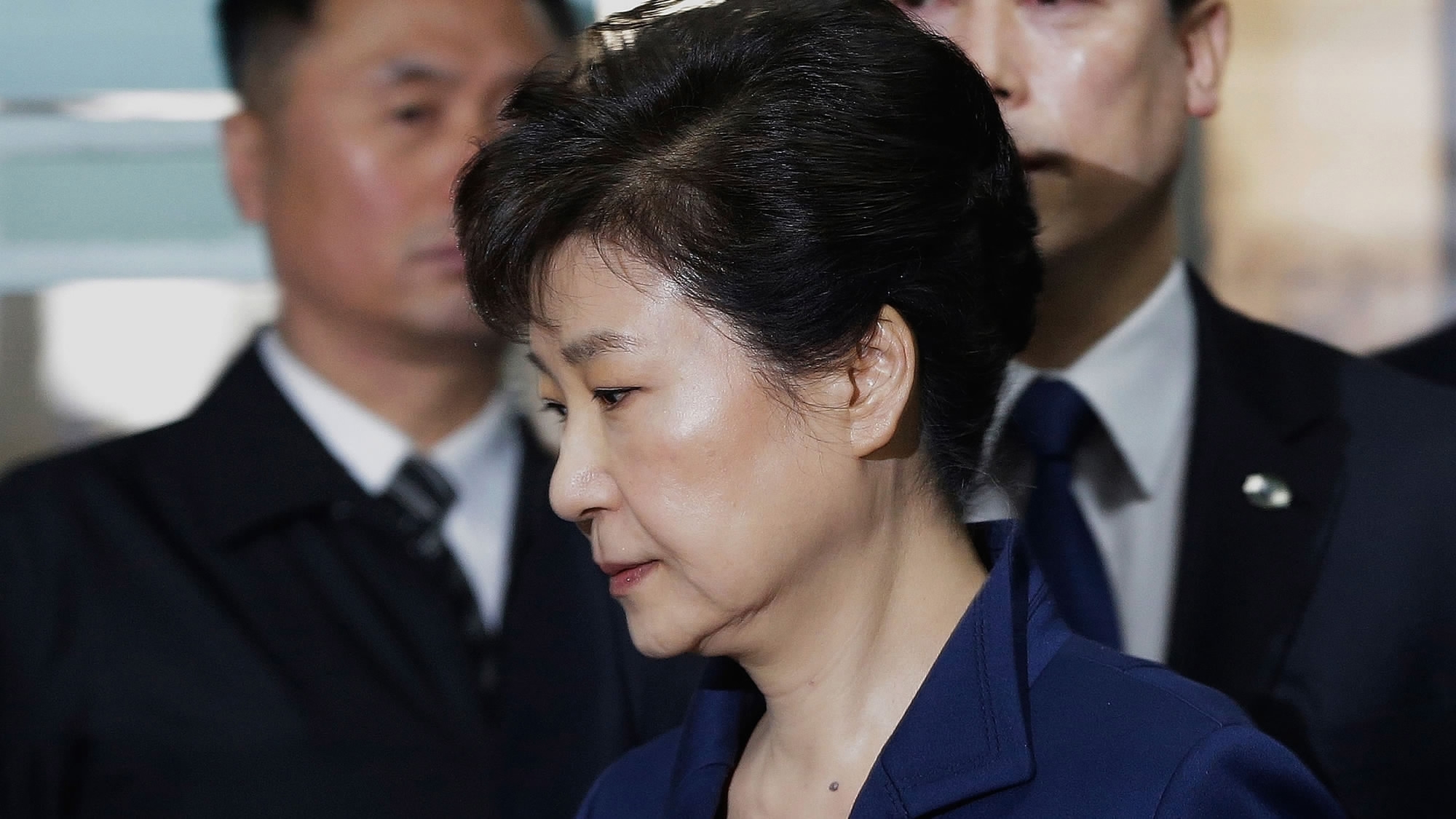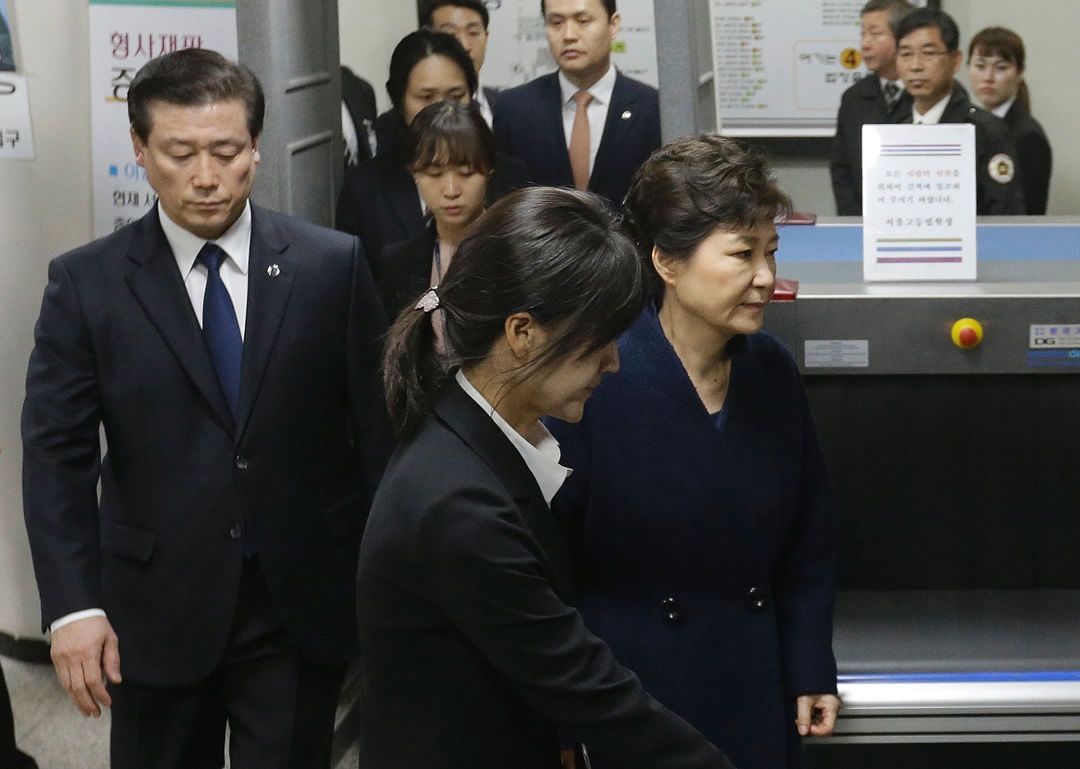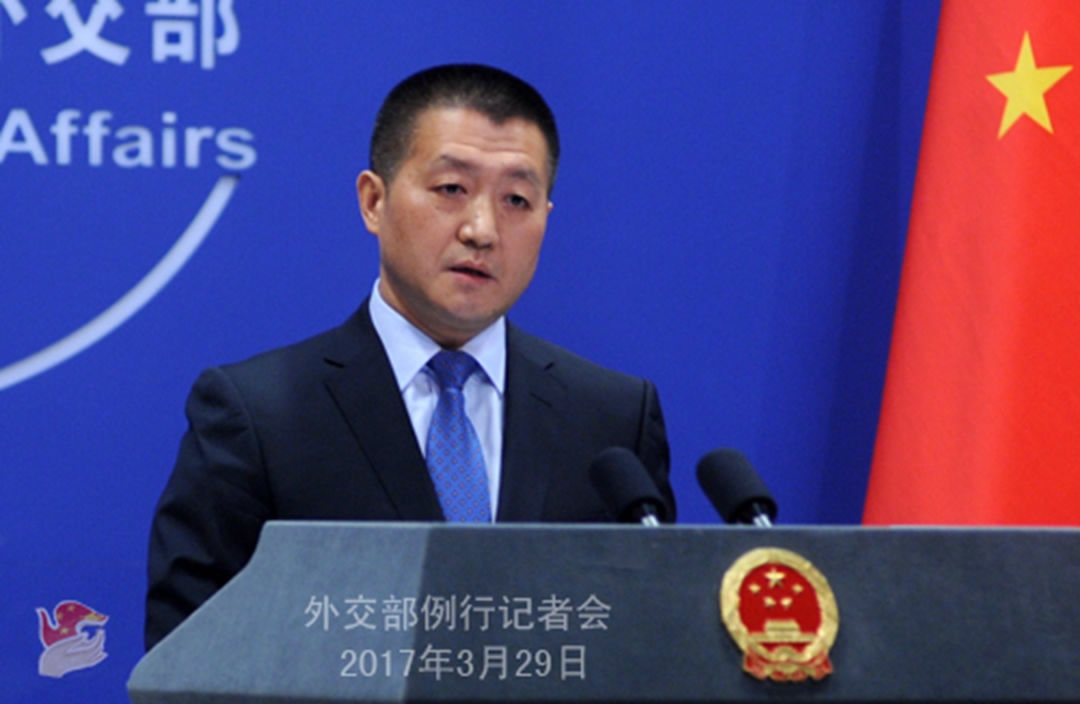Impeached Park Geun-hye awaits arrest decision
2017-03-30 20:10 GMT+8
951km to Beijing

Editor
Liu Hui
Impeached ROK President Park Geun-hye is waiting for a court decision on whether she will face arrest due to a series of high-level allegations, amid what has been called the largest political scandal in the country in recent years.
As of 7:30 p.m. local time on Thursday, Park left the court after a nearly nine-hour marathon hearing, with the court’s final decision to be released late at night or early the next morning.

Ousted ROK President Park Geun-hye (front R) leaves after a hearing at the Seoul Central District Court on March 30, 2017. /CFP Photo
The court will decide the fate of the 65-year-old politician, who is accused of colluding with her friend and close confidante Choi Soon-sil to pressure big businesses into “donating” large sums of cash to foundations set up to back her policy initiatives.
If all the charges against her are confirmed, Park will be immediately taken to a detention center in southern Seoul, where she could go on to serve a possible jail term.
Here’s a timeline looking at the life and career of Park Geun-hye:

Third former president to be arrested over corruption
If the Seoul Central District Court issues the warrant, Park will become the country’s third former president to be arrested on criminal charges related to corruption, following Roh Tae-woo and Chun Doo-hwan.
In 1996, former presidents Chun and Roh were jailed on charges of corruption. They were both later found guilty of further charges of treason and mutiny, related to their takeover of power.
Chun was sentenced to death, while Roh received a 22 and a half year sentence. They were both pardoned and released a year later.
China-ROK ties under Park
China and the ROK were close allies in the early years of Park’s presidency, with their respective presidents visiting each other’s countries.
A free trade agreement between China and the ROK took effect in 2015, a year which saw bilateral trade hit a record high of 276 billion US dollars.
However, relations took a dramatic turn for the worse in July 2016, when the ROK confirmed plans to deploy the US THAAD (Terminal High Altitude Area Defense) anti-missile system. Park said it would provide necessary self-defense against the nuclear threat from the DPRK.
THAAD an obstacle for China-ROK ties

China’s Foreign Ministry spokesperson Lu Kang answers questions from reporters in a regular press conference on March 29, 2017. /MOFA Photo
For THAAD to work, the ROK will employ a radar detection system which is capable of probing deep into areas within a 3,000 kilometer radius. This range goes well beyond the DPRK and reaches far into Chinese and Russian territory.
On Wednesday, China’s Foreign Ministry spokesperson Lu Kang reiterated China’s opposition to the deployment of THAAD in the ROK. “The deployment of the THAAD system in the ROK is a part of the move by the US to boost its global missile defense system and has a bearing on the peace and stability of Northeast Asia,” Lu said at a routine media briefing.
Political scandal’s effects ripple across the ROK
Following and throughout Park’s political scandal, public outcry calling for reforms to the ROK's powerful family-run “chaebol” conglomerates has been voiced loud and clear, with mass protests a common sight in Seoul in recent months. At least three conglomerates are currently being investigated in connection to the scandal: the Samsung Group, the Lotte Group, and the SK Group.
The ROK will hold a new round of presidential elections on May 9, following Park’s impeachment. Park’s former rival, Moon Jae-in of the Democratic Party of Korea, is currently leading opinion polls, and is widely regarded as the frontrunner. Last Friday, one of his advisers told Reuters that Moon would “do a review of the validity of the decision” to deploy THAAD if elected, and would consult both the US and China.
951km
Copyright © 2017
